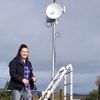Tales from the Field
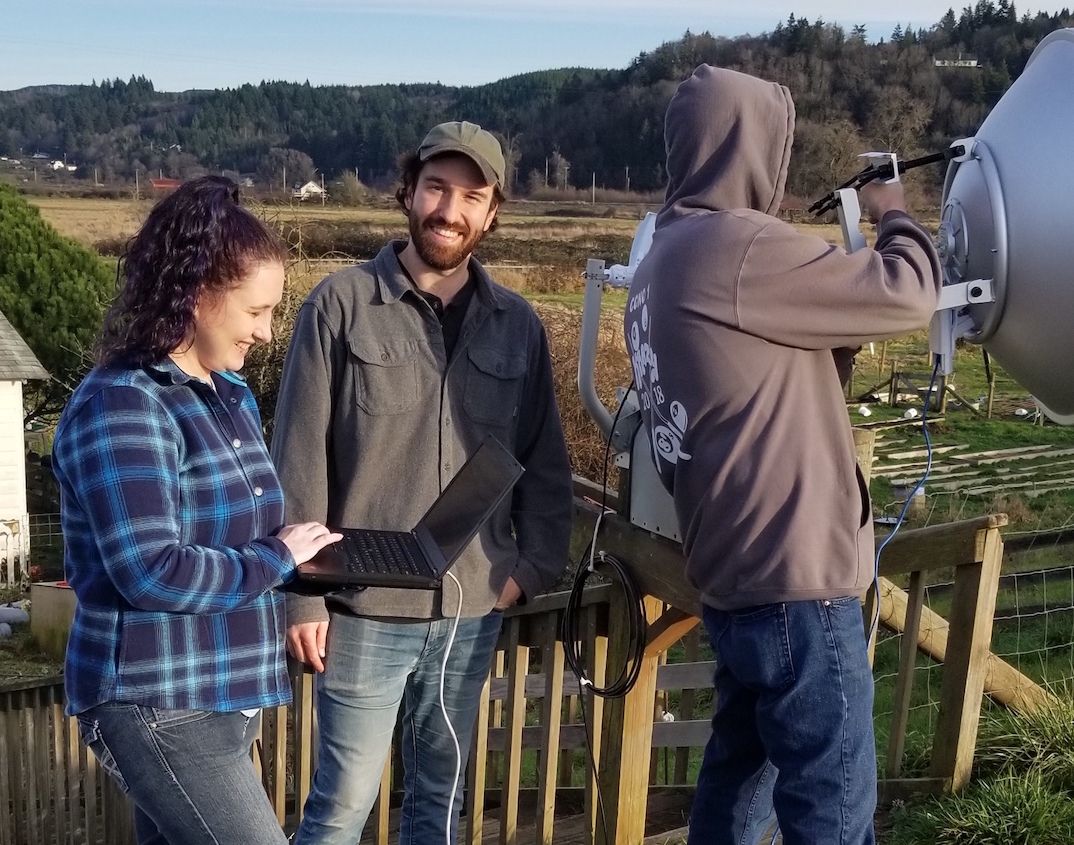
It was raining. It always seems to rain just as we pack up the rig with all of the antennas, cables, and tools. My fellow subnet organizer, Shaun, and I were heading to install a new Althea user. A few previous installs under our belt, we are getting better at packing the necessary tools and the process of installing seems to take less time. It's still takes about an hour and a half to install or sometimes several hours if there are complications.
As we pull up to the house, Shaun eyes a dense clump of trees between the house and our gateway antennas dubiously. “I bet we can't get good signal”, he says and attempts to avoid my disapproving glare by gulping his coffee. Not easily dissuaded, I have come prepared with maps and a link budget that shows we can set up a link here. We usually start our planning by using google maps and Ubiquiti's link budget tool, and I have done my homework. We look at Ubiquiti's app on my phone and the line indicating aiming is fortunately located just to the left of the trees.
The homeowner spots us getting our “staff of aiming” out of the car and comes to greet us. The staff (+10 to knowledge) is a Ubiquiti litebeam attached to a sturdy pvc pipe, which we use to walk around a homeowner's property to find the best signal. She's heard about our new type of internet service and likes the idea of being a part of a cooperative, supporting a local group of organizers, and getting great internet service. She's a real estate agent in the area, and knows how many homeowners are underserved in our area - left behind by corporate ISPs that took millions in federal tax dollars and then sold out to big national companies. We also talk about the importance of fast internet, and I tell her about the neighbor a block away that was so excited about his great speeds that he came running out of his house, laptop open in his hands, to show me the amazing improvement our new internet was.
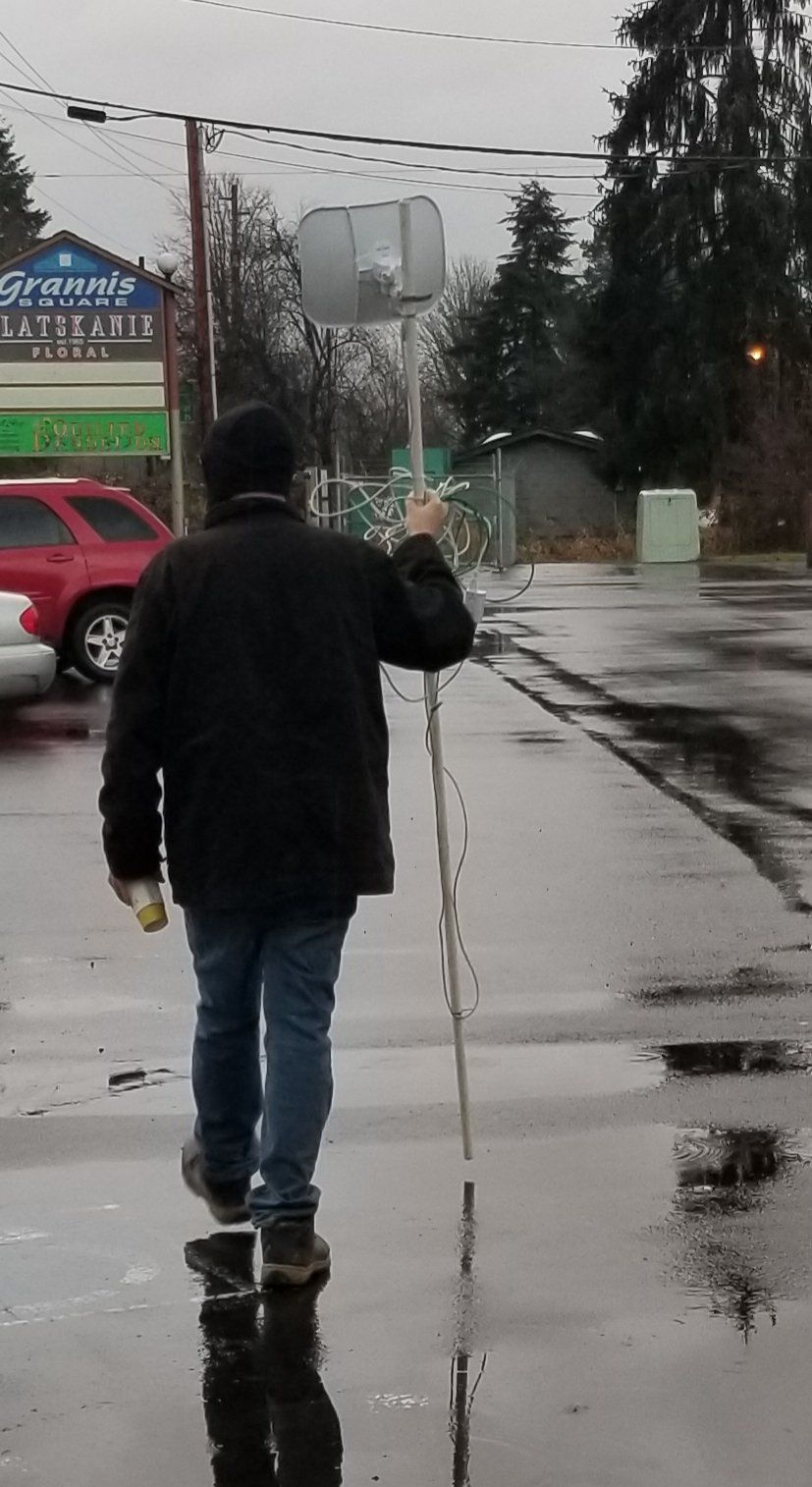
I waved to my nephew across the street washing his car. We will install at his house the following week. He and his roommate are excited to be a relay to the other apartments in the complex. As subnet organizers, we'll help them keep things going well, his neighbors can call us if they have any problems, and he can make a few dollars by forwarding bandwidth along. Our Althea Subnet organization is set-up as a legal cooperative and we collect revenue from a set monthly fee, which creates a sustainable source of revenue as we support the diverse set of homeowners and business who have relay antennas broadcasting throughout the community.
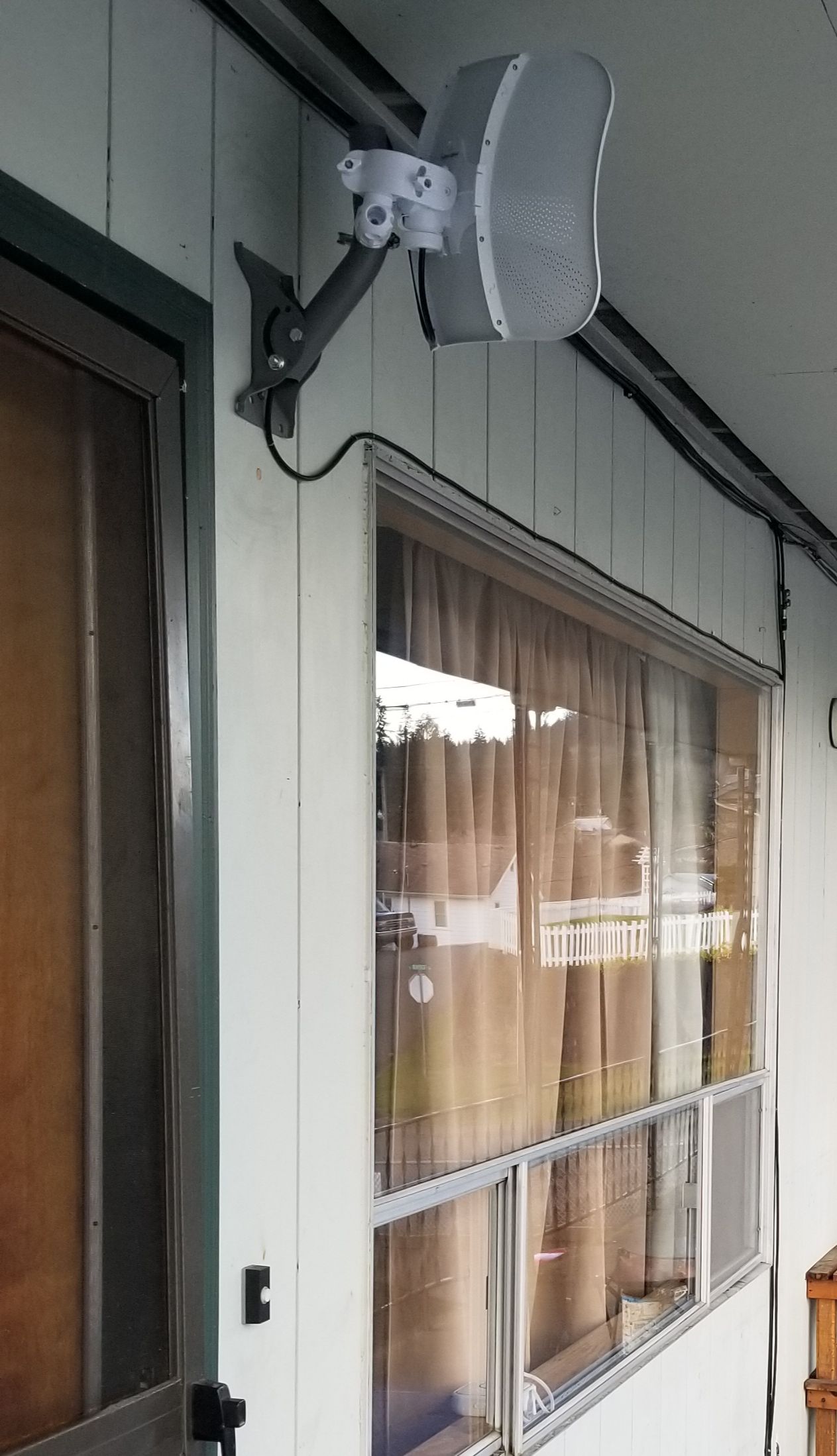
Despite our best efforts not to forget anything this time, we have forgotten our socket set, so we welcome the help that her and her boyfriend offer. In fact, it's very common for us to arrive and receive a helping hand with mounting or even crawling under the house to connect the cable. I think people like helping - this isn't like getting a cable hookup and waiting forever between the “hours of 12-4” knowing the installer will not arrive until the next day. It's a way to be a part of something, to build something meaningful and sustainable. One of the local business owners who also has an Althea relay, said “I like being a part of something bigger”. We were able to hookup a couple who hasn't had internet since the dial up days from her relay, which is definitely “something big”.
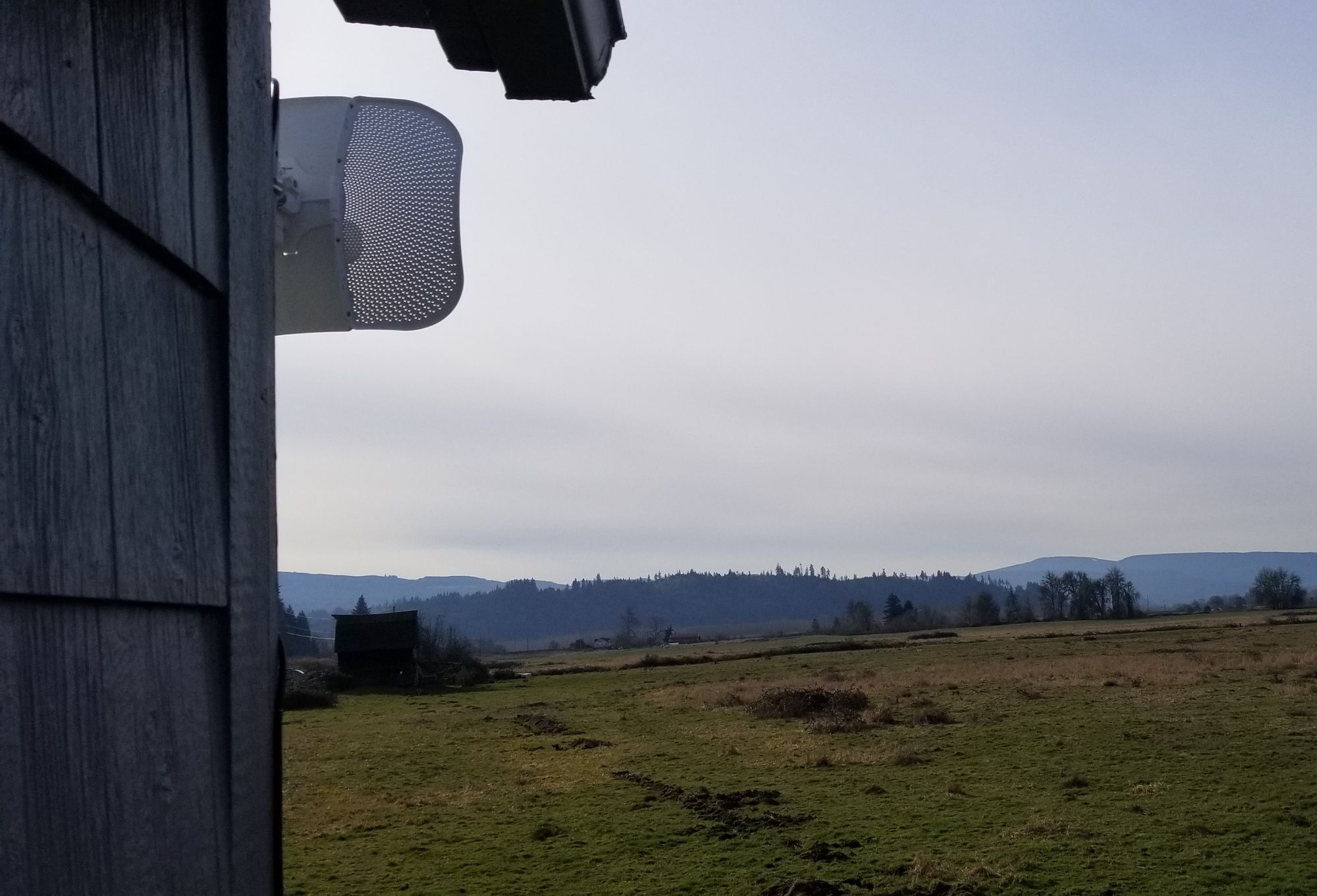
After mounting the antenna, Shaun and I joke about “talking to the aliens”, as what looks right for aiming the vertical axis seems a little different according to each of our perspectives. Thankfully, we can look at the radio dashboard on the laptop and slowly pan along the horizontal and vertical axis. A few db of signal strength can make a large impact on throughput, so we always take our time to find the best signal.
A quick check of the radio dashboard indicates that there are several relays nearby, and we choose the one with the best signal strength. In the future, we can set up another antenna and her Althea router will automatically route through the best and least expensive route. She can also become a a relay for her neighbors by using another antennas as an access point for other houses nearby. For now, we are just installing one antenna and Althea router.
With the radio mounted and aimed we carefully routed the ethernet cable along the siding and in to the home. I always like to make sure we are clipping the ends off of the zip ties, and that service and drain loops are tidy. While Shaun terminates the end of the ethernet cable, I tell her about how she can load her router up with tokens as she needs. I help her install the Coinbase app on her phone and show her how to scan the QR code in her router dashboard to send ethereum to her router. It doesn't take long, about 10 minutes, and she has the hang of it. All she has to do is load up the router with tokens and her router will do the job of sending micro transaction payments to any of the other relays along her route, and to the subnet organizers, for their monthly fee.
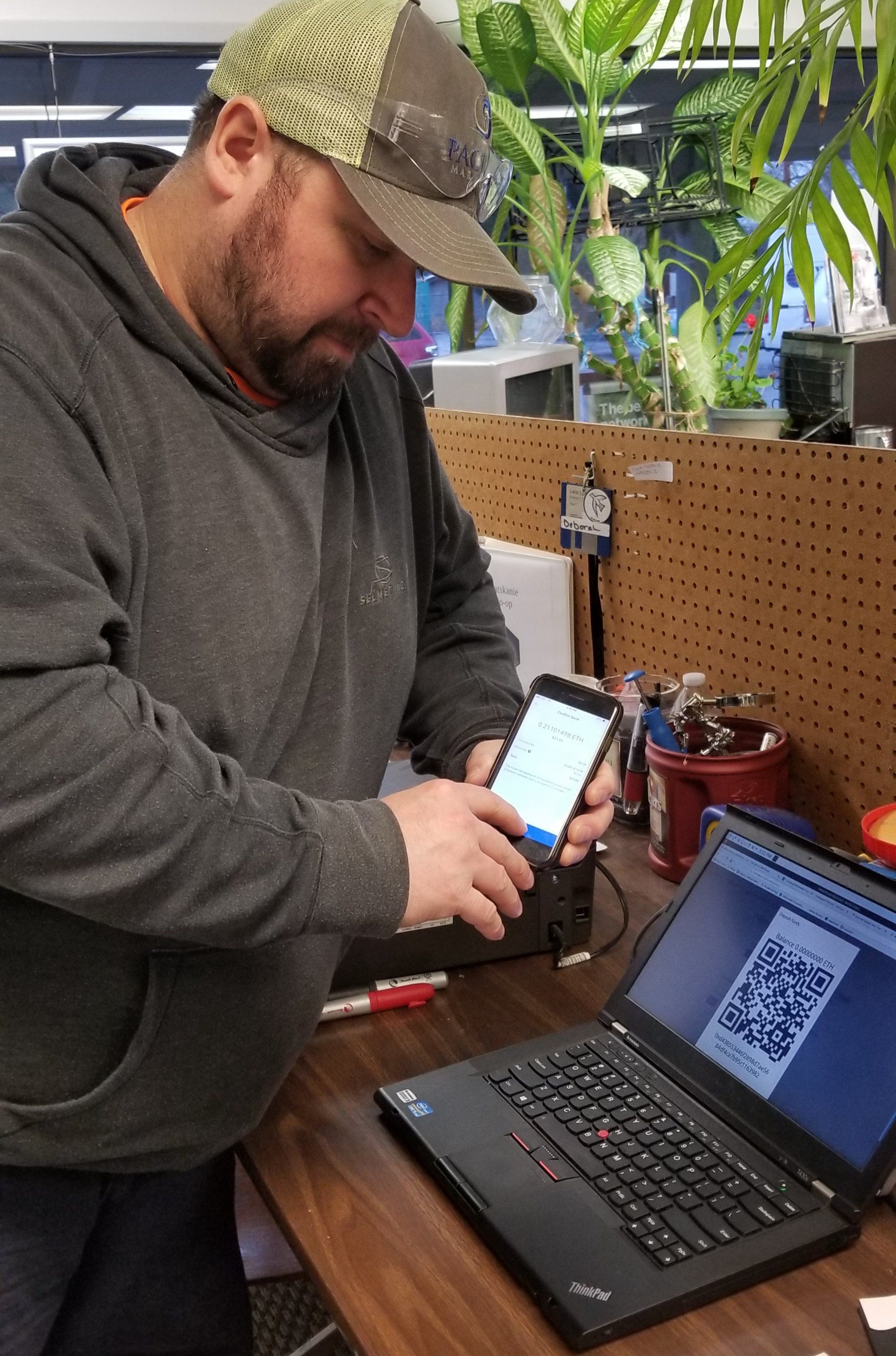
As we finish up and begin packing up our tools, I spot another one of her neighbor's antennas and smile. It's a manifestation of Althea's decentralized system. A variety of different entities have ownership and are participating in seamlessly peering and reselling bandwidth across the network. If the dream of decentralized network ownership can happen in rural Oregon, maybe it can happen anywhere.

